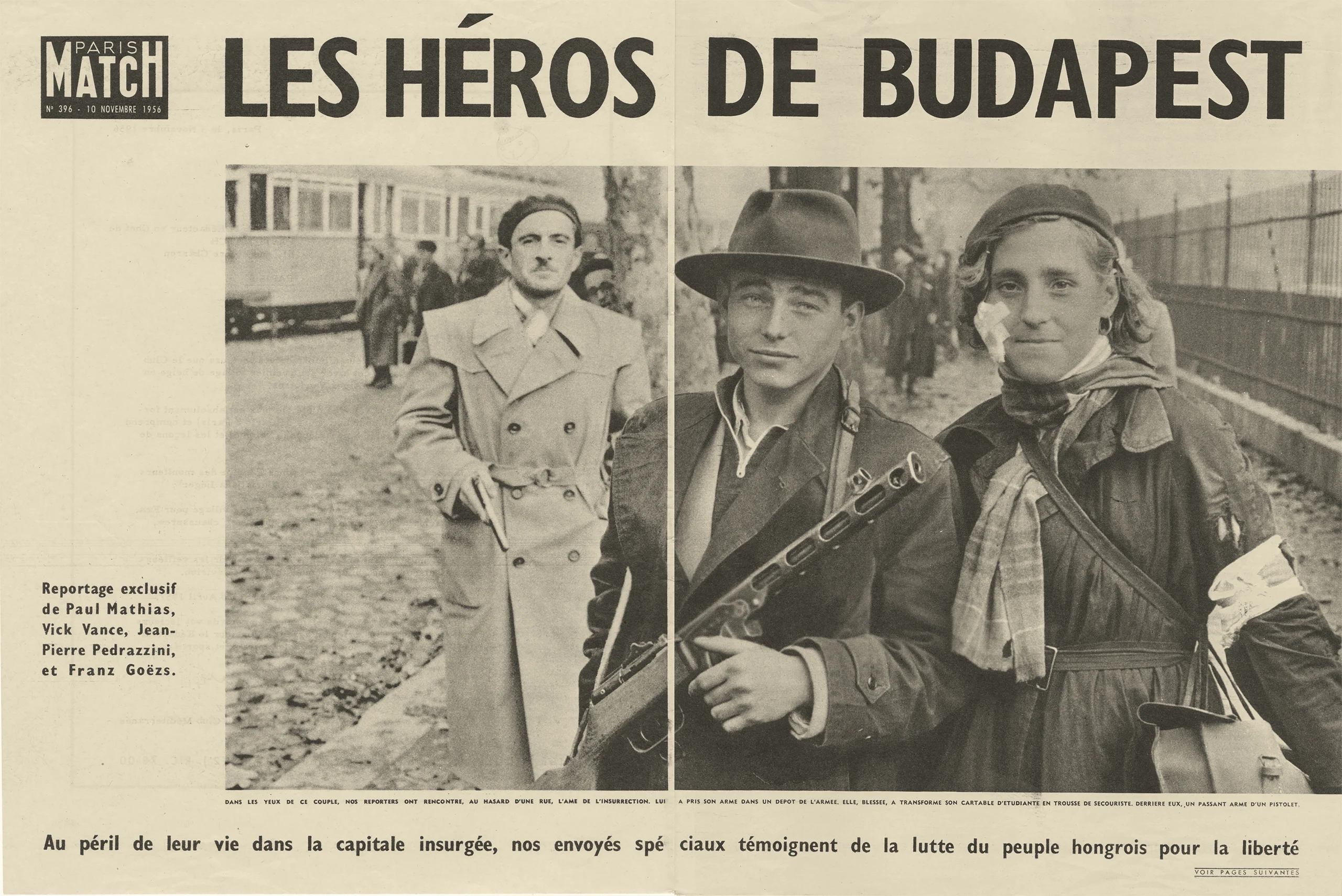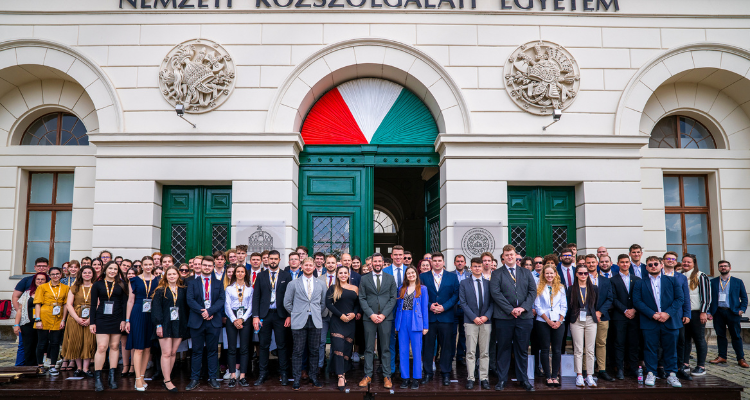We’re often going on about the way that involvement in student politics can set people up for leadership roles in civic society – but there are plenty of people that don’t realise that Hungarian PM Viktor Orbán was a student activist.
And not just any old student activist. Orbán studied law at Eötvös Loránd University in Budapest in the late 1980s, where he co-founded Fidesz (the Alliance of Young Democrats), a youth-driven political movement opposing the communist regime.
On June 16 1989, he gave a speech in front of 200,000 people at the reburial of the martyrs of the 1956 revolution, calling for the withdrawal of Soviet troops and democratic reforms.
It marked both the beginning of his prominent political career and the beginning of the end of Soviet rule – and a career in politics that might have drifted rightward, but wasl always about self-sufficiency and strength:
The lesson is clear: only Hungarians can show the world the truth of Hungarians, and only Hungarians can defend their own truth against the dangers that threaten it. If the country is destroyed, our struggle for freedom will have been in vain. If all that remains are hollow ruins, we have gained nothing. If millions of people have to leave the country, the next generation will have no homeland. We have nowhere to run, because Hungary cannot be found anywhere else. We must preserve this, we must protect this; our prosperity must be sought here.
 Students had played a huge role in the 1956 revolution too. On October 22, 1956, a group of them had got together to compile a 16-point list of national policy proposals that were read at the foot of the General Bem statue, a Polish hero of the 1848 War of Liberation, in solidarity with anti-communist demonstrations in Poznan, Poland.
Students had played a huge role in the 1956 revolution too. On October 22, 1956, a group of them had got together to compile a 16-point list of national policy proposals that were read at the foot of the General Bem statue, a Polish hero of the 1848 War of Liberation, in solidarity with anti-communist demonstrations in Poznan, Poland.
Following an anti-Soviet march through Budapest, they’d decided to try to enter the city’s main broadcasting station to get some public support by reading their demands on the air. They were swiftly detained, and when people gathered outside the broadcasting station to call for their release, state security police fired on the unarmed crowd, and the revolution began.
Students joined freedom fighters, and a number were killed in the intense fighting or later during Soviet reprisals. And after the revolution’s suppression, some students were arrested, tried, and executed, and others faced imprisonment or fled the country as refugees. Their bravery and sacrifices remain a pretty powerful symbol of the revolution’s ideals – which in many ways were only eventually realised in 1989.
“Student politics” is often used as a term of disparagement in the UK – but you can see why that is not necessarily so depending on which country you’re in.

Clash or compromise?
It’s been a backdrop to our arrival in Budapest today for Day 0 the Wonkhe SUs study tour to the Visegrad countries of Hungary, Poland, Slovakia and Czechia – where tomorrow student leaders and SU staff will begin a five day tour of over 30 students’ unions, guilds, associations, and even the odd university official too.
The city is home to Hallgatói Önkormányzatok Országos Konferenciája (HÖOK), Hungary’s version of NUS. Established in 1990 in the wake of Hungary’s transition from a socialist regime to democracy, student councils from Hungarian universities and colleges joined forces to establish the first nationwide, autonomous SU in post-communist Hungary to represent students in policy discussions at the national level – particularly over the restructuring of the education system.
There were plenty of early successes – the introduction of ECTS credits, bachelor’s and master’s degree structures, student engagement in quality assurance, and wins on accommodation and career development – but there have also been controversies.
A body usually more likely to argue for compromise rather than conflict has often faced inevitable accusations over the past 14 years that it’s too close to Viktor Orbán – in the early 2010s, for example, the Orbán government significantly reduced the number of state-funded university places and proposed higher tuition fees – and while students were on the streets organising protests across Hungary, HÖOK was accused of negotiating compromises with the government rather than supporting more radical opposition.
In many ways it’s exactly the same sort of argument that surrounds SUs all around the world, as well as bodies like trade unions – but with an extra twist given the PM’s student activist background.

When we do catch up with HÖOK tomorrow, we’ll be sure to discuss its “Future Vision” programme, which launched back in 2017 when students took to the streets to protest against legislation targeting the Central European University (CEU) in Hungary.
The government had introduced strict requirements that many saw as a direct attempt to force the CEU out of the country, undermining academic freedom and independence. Demonstrators argued the legislation was part of a broader crackdown on civil society and free institutions under Viktor Orbán’s administration.
Attempting to find a practical way through political conflicts of that sort is an example of the way HÖOK had drawn criticism over the year – but it’s hard to argue with many of the successes that came from the document.
There have been significant increases in scholarship amounts (including doctoral students’ stipends), and new scholarships for nursing and legal studies. HÖOK got the central admissions thresholds for 41 fields of study revised, negotiated new initiatives to enhance students’ language competencies, and has secured investments in infrastructure, dormitories, and general student services to ensure better living and learning conditions for students.
So successful has the approach been of setting out a comprehensive, long term look at the future for students and universities (rather than just depending on manifestos or motions) that it’s just agreed and issued a 2024 version.

Here students are positioned as a vital asset to the nation’s future, with their well-being, education, and success directly impacting the country’s social and economic development. They’re the foundation of a skilled workforce that supports innovation, economic growth, and global competitiveness, addressing barriers like financial hardship is framed in social mobility terms, a well-supported student body contributes to better rankings and reputation, and crucially providing adequate resources and opportunities motivates students to remain in the country post-graduation, reducing emigration and retaining talent within the national economy.
That matters because like European countries, Hungary has an ageing population and a declining birth rate – and as well as a range of general generous subsidies to encourage families, in HE Hungary offers full student debt forgiveness for mothers under the age of 30 who have a child during university or within two years after graduation.
It’s all a fascinating reminder of the way in which student politics can influence national debates – especially when students and universitioes are positioned in the context of a nation’s future.
We have plenty more to chat about when we meet tomorrow – housing, student finance and student employment are all fairly universal issues – as well as a government initiative to transition public universities to private foundations that has raised concerns about academic freedom and institutional autonomy.





















